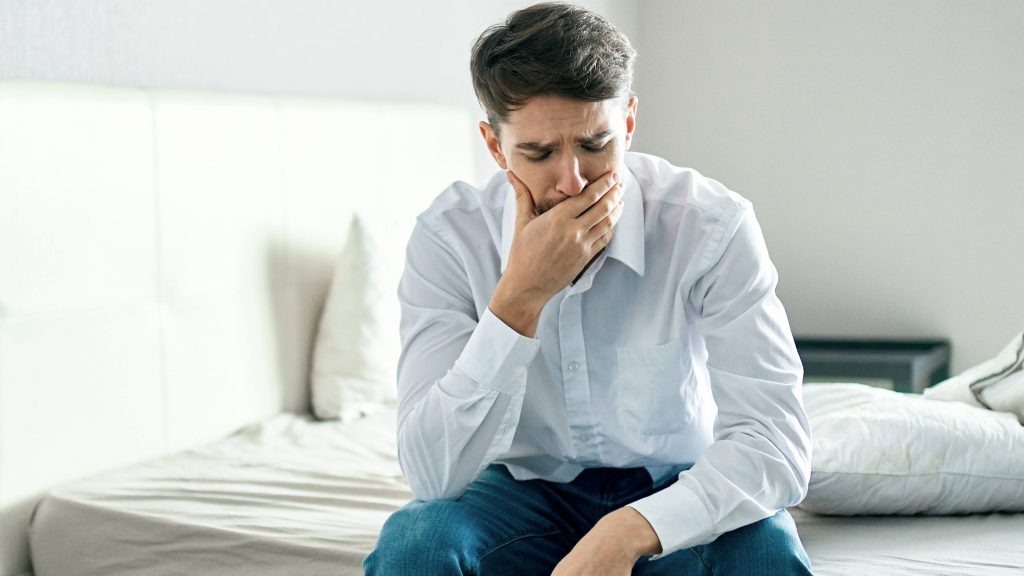-
Mayo Clinic Q and A: Building resilience to tame anxiety

DEAR MAYO CLINIC: I struggle with persistent anxiety, which often leaves me feeling drained mentally and physically. Minor setbacks or stressors can cause me to spiral into negative thinking. What techniques can help me manage my anxiety in a lasting way?
ANSWER: Anxiety is a common and uncomfortable struggle for many people. The tendency to have anxiety comes from your genetics, your sense of security (or lack of it), the role modeling you received as a child, and, of course, the significant and challenging events that happen throughout your life.
Everyone has a point, no matter how resilient you are, where anxiety can overtake your emotions and life. Social fears, physical health issues, financial issues, loneliness, relationship issues and world affairs can collectively affect you to the point where you feel anxious.
Anxiety and fear are natural protectors. The fight-or-flight response they trigger motivates you to run, fight or possibly freeze to escape the danger. This response has kept humans alive for all of our history despite many risks in the world. It can become an issue, however, when you're not in physical danger, but your mental or emotional stress still triggers that fight-or-flight response.
Anxiety affects you physically, along with your thoughts and actions. When you face physical danger, anxiety is designed to help you focus on the threat so you know where the danger is coming from and then respond in ways that help fight it or escape from it.
Anxiety can cause uncomfortable physical symptoms such as a racing heart, inability to concentrate, shakiness, sweating or difficulty swallowing. These symptoms may not feel good, but they aren't dangerous in the short term. Feeling tense, irritable and impatient can be a part of anxiety. People may pace, space out or feel like they're spinning their wheels and not getting anything done.
Here are nine tips to build up your resilience when faced with anxious times:
- Gather information.
Knowledge of the threat, concerns, fears or issues can reduce anxiety. Gather accurate, factual information from trusted sources to better understand the source of your anxiety and help with problem-solving to gain a greater sense of control. - Establish a new routine.
Routine and structure can be helpful and calming. Mindfully create a daily and weekly flow of events, such as starting your morning with breakfast and a relaxing cup of coffee or tea. A routine of practical and enjoyable tasks may include making a list of projects you want to accomplish, reading inspirational books or writing in a journal to express your thoughts, hopes, emotions and concerns. - Stay connected.
Reaching out to loved ones is essential, whether through phone calls, texting, emailing, video calls or in person. Human connection can lower stress and anxiety levels and build relationships. Helping others and volunteering for a cause can give you purpose and help you feel more fulfilled and less anxious. - Practice self-care habits.
Take a few moments to care for yourself each day, such as soaking in a soothing bath, listening to calming or upbeat music, getting plenty of sleep, and eating regular, balanced, nutritious meals and snacks. These habits can help whether you work from home or outside the home. - Look for the good.
Acknowledge and accept that the good and bad often exist next to each other. A person can be sad about one thing but aware that there's goodness and happiness in the same moment for another thing. Intentionally look for those good things. Our thoughts can grow and feed on each other, so it can help to purposefully think hopeful, realistic and solution-focused thoughts. Look for the beauty amid the difficulties in life. - Exercise.
Regular exercise and movement help release the built-up fight-or-flight energy. Exercise also releases endorphins, which are feel-good chemicals in the brain. Using bigger muscle movements can help release more of this energy so you feel calmer. Try jumping jacks, pushups, walking, running, dancing, chopping wood, swimming or lifting weights. Stretching and yoga also can help reduce stress. - Meditate.
Meditation, mindfulness and breathing exercises are good ways to release stress. Now is an excellent time to learn and incorporate these approaches into your life until they become daily habits. - Reflect.
Take time to reflect on what is truly important. Explore your worldview, spirituality and belief system. Find meaning in your life. Identify what you're grateful for and express gratitude. - Reach out.
You aren't alone. If you feel alone, don't be silent. Instead, reach out to a friend or healthcare professional. Attend a support group that addresses your area of struggle. Communicating your hopes and fears and listening to others divides the burden and increases the connection. This can decrease your sense of anxiety. ― Linda Hubbard, Psychiatry & Psychology, Mayo Clinic Health System, Eau Claire, Wisconsin







